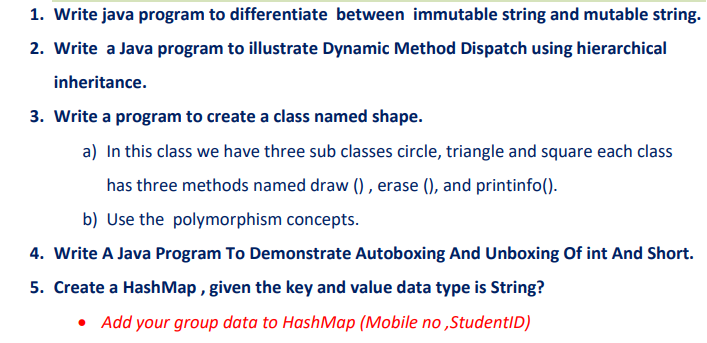What Is Immutable Strings and How It Functions
In the realm of programming, comprehending the idea of immutable strings is paramount for creating secure and robust applications. Unalterable strings refer to strings that can not be changed after they are developed, guaranteeing data honesty and predictability within the code. This essential concept plays an important role in numerous shows languages and offers an one-of-a-kind technique to dealing with data. By exploring the details of how immutable strings operate, one can discover a globe of advantages and opportunities that can raise the top quality and performance of software application growth.
The Basics of Unalterable Strings
Immutable strings, as a basic principle in programs, are character sequences that can not be transformed when they are created. This means that once a string is designated a worth, that value can not be changed. In languages like Python and Java, strings are unalterable things, bring about various effects in regards to memory administration and data stability.
One of the crucial benefits of immutable strings is that they give a sense of safety and security in data manipulation. Considering that the web content of an immutable string can not be modified, it ensures that the original information stays undamaged, reducing the risk of unplanned changes throughout program execution (Why are strings immutable in Java?). This residential property likewise streamlines debugging procedures, as programmers can rely on that as soon as a string is specified, its worth will not be accidentally altered
In addition, immutable strings assist in reliable memory use. When a brand-new string is developed based on an existing one, rather than customizing the original string, the brand-new worth is kept individually. This method improves performance by lowering memory fragmentation and streamlining memory appropriation procedures. Overall, recognizing the fundamentals of immutable strings is important for mastering programming principles and maximizing code effectiveness.
Benefits of Unalterable Strings
Building upon the safety and security and performance advantages of unalterable strings, their benefits include improving code reliability and simplifying concurrent shows tasks. By being immutable, strings can not be modified after production, which gets rid of the risk of unintended changes in the data they keep. This intrinsic immutability guarantees that once a string is created, its value stays continuous throughout the program's execution, decreasing the opportunities of bugs triggered by unforeseen alterations.
Furthermore, unalterable strings add to code dependability by making it easier to reason concerning the state of a program. Considering that strings can not be changed, programmers can trust that a string will always hold the same worth, streamlining debugging and upkeep initiatives. This predictability causes a lot more dependable and stable codebases.
Execution in Programs Languages
Within numerous shows languages, the unification of immutable strings is a basic facet that influences how information is managed and controlled within code structures. The implementation of unalterable strings differs throughout different programming languages, with each language using its very own mechanisms to support this concept.

On the other hand, languages like C and C++ do not have built-in assistance for immutable strings. Programmers in these languages have to by hand apply immutability by enforcing policies within their code to avoid straight modifications to string things.
Best Practices for Collaborating With Unalterable Strings
When dealing with immutable strings in programming languages like Java and Python, adhering to best practices makes certain safe and secure and efficient information manipulation. Among the crucial finest techniques is to utilize StringBuilder or StringBuffer rather of straight adjusting strings, specifically when managing considerable concatenation procedures. These courses offer mutable options for string adjustment, assisting to avoid unneeded memory allocations and enhancing efficiency.
Furthermore, when functioning with delicate information such as passwords or API keys, it is critical to prevent saving them as plain text in unalterable strings. Utilizing helpful site safe storage space mechanisms like char ranges or specialized collections for taking care of sensitive information aids reduce safety threats linked with unalterable strings.
Real-world Applications and Examples
Checking out useful implementations of immutable strings in various industries exposes their significant impact on information integrity and system reliability. In the health care field, immutable strings play a critical function in making sure the safety and security and discretion of individual data. By stopping unauthorized alterations to sensitive information such as clinical records and prescriptions, unalterable strings help keep compliance with stringent personal privacy regulations like HIPAA.
Banks also take advantage of the immutable nature of strings to improve the safety of customer information and transaction documents. Unalterable strings aid avoid scams and unapproved alterations to monetary info, supplying a durable defense versus cyber hazards and guaranteeing the trust and confidence of clients.

Verdict
Best practices for working with immutable strings consist of preventing straight adjustments and making use of techniques that return brand-new string objects. Real-world applications of unalterable strings consist of data file encryption, caching, and string adjustment jobs.
Unalterable strings refer to strings that can not be changed after they are developed, guaranteeing data stability and predictability within the code. When a brand-new string is developed based on an existing one, rather than modifying the original string, the new value is kept individually.In languages like Java and Python, strings are unalterable by default, suggesting that as soon as a string object is created, its learn the facts here now value can not be transformed - Why are strings immutable in Java?. Finest methods for functioning with unalterable strings include preventing straight modifications and using approaches that return brand-new string objects. Real-world applications of immutable strings include data security, caching, and string control tasks